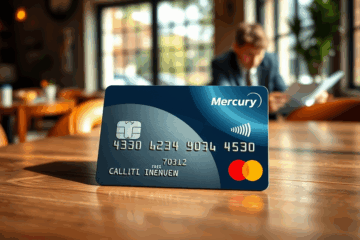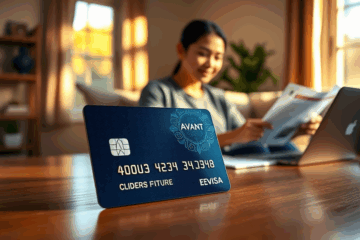How to Pay Bills with a Credit Card Easily
Credit Card payments can significantly simplify managing your monthly bills while offering the opportunity to earn rewards.
In this article, we will explore the various aspects of using credit cards for bill payments.
We will examine how to determine if your biller accepts credit card payments, the option of utilizing third-party services like Plastiq, and important considerations regarding fees.
Additionally, we will discuss strategies for maximizing rewards and cashback benefits, as well as tips for avoiding interest charges through timely payments.
Join us as we dive into the savvy world of credit card bill management.
Benefits and Common Bill Types
Paying bills with a credit card involves using your card to cover expenses typically managed through direct bank withdrawals or checks.
This method offers several advantages, most notably the convenience of consolidating payments in one place, which simplifies financial tracking and management.
By utilizing a credit card, individuals can also enjoy benefits like earning rewards or cashback on transactions, which in turn can offer financial gains over time.
A key appeal of this method is the ability to manage cash-flow flexibly, as credit cards allow for delayed payment, giving users more control over their monthly budget.
- Utilities
- Streaming subscriptions
- Insurance premiums
Such payments are ideal for credit card transactions.
Opting to use a credit card for these recurring expenses aligns with strategic financial planning, as it can help meet spending thresholds for earning rewards or activating specific credit card benefits.
Furthermore, using credit cards for bills can protect against fraud due to the robust security features offered by most credit providers.
Consequently, many people choose this payment method to optimize their financial efficiency.
Verifying Biller Compatibility
Understanding biller compatibility is crucial when managing payments via credit cards.
Many service providers offer credit card payment options, facilitating smoother transactions and the opportunity to earn rewards.
However, it’s essential to verify whether your biller accepts this payment method.
Additionally, confirm any associated transaction fees to avoid unexpected charges.
- Examine the payment section of your bill or statement; it typically outlines acceptable methods, including credit cards.
- Go to the official website of your biller; navigate toward their payment options page for detailed information.
- Contact customer service for your provider to receive up-to-date information on credit card acceptance.
- Utilize third-party payment services like Plastiq to facilitate payments with merchants that do not directly accept credit cards.
Remember, Always confirm any extra fees first.
This ensures a clear understanding of potential costs associated with your credit card payments.
Using Third-Party Services
Third-party bill-payment platforms offer a flexible method to settle bills using credit cards, even if your biller doesn’t accept them directly.
They act as intermediaries, allowing you to fund payments with a credit card while the service itself transfers the payment to your biller using other methods such as ACH, check, or wire.
This process can be crucial for managing cash flow and utilizing rewards.
| Platform | Key Feature | Typical Fee |
|---|---|---|
| Plastiq | Lets you pay rent | 2.5% |
One advantage of using these services is the ability to earn rewards on transactions that wouldn’t usually qualify when you directly pay through traditional methods.
However, a significant drawback is the service fee, which can add up and offset the rewards if not carefully considered.
Managing Extra Fees
When managing credit card payments for bills, individuals often encounter a range of charges such as convenience fees or processing fees.
These fees are typically applied by service providers or third-party platforms facilitating the payment.
They usually range around 2-3 percent of the transaction amount.
These percentages might seem minimal at first glance, yet they can accumulate significantly over time if you’re consistently using credit payments.
An important warning to bear in mind is that these fees can potentially negate any rewards, cashback, or points typically accrued from credit card usage.
CNBC offers insightful strategies to avoid or minimize these charges.
Opting for billers who do not impose such fees, or using cards specifically designed to offset transaction costs, could significantly enhance your financial management strategy.
Moreover, consistently evaluating and comparing service provider terms may prevent unexpected charge surprises, thereby maintaining the intended financial benefits credit cards offer.
Maximizing Rewards and Cashback
Leveraging credit card rewards programs can transform ordinary bill payments into valuable earning opportunities.
To maximize the benefits, it’s crucial to use the right strategies and select cards that align with your spending habits.
One effective approach is to utilize cards that offer bonus categories, particularly on bills like utilities, groceries, or streaming services.
For more comprehensive insights, you can explore resources like the NerdWallet Guide on Rewards Credit Cards.
Additionally, consider service providers that allow credit card payments directly, or employ third-party services such as Plastiq if your provider doesn’t accept credit cards.
Here’s a brief strategy list to optimize your rewards and cashback yields:
- Pick a card that offers elevated earnings on utilities
- Utilize bonus categories for specific bills
- Choose cards with highly rewarding welcome bonuses
- Time payments after your statement closes to improve cash flow
By following these targeted steps, you manage your expenses more efficiently while maximizing the financial perks on offer.
Avoiding Interest Charges
Credit card billing cycles typically span about 30 days, during which purchases are accumulated.
After the cycle, a statement is issued, outlining the total balance due.
Paying the full balance by the due date is crucial, as it ensures you avoid interest charges that accrue on any remaining balance.
To manage this efficiently, consider setting calendar alerts to remind you when payments are approaching, ensuring you’re always on time.
Additionally, enabling autopay can help maintain punctuality by automatically deducting payments on the scheduled date.
By doing this, you not only dodge interest charges but also positively influence your credit score.
As a final step, check each statement for accuracy to identify any discrepancies or unauthorized transactions, safeguarding your finances from potential errors.
Credit Card bill payments can be a valuable tool for financial management.
By understanding compatibility, utilizing third-party services, and navigating fees, you can maximize rewards and avoid unnecessary charges.
Keep these strategies in mind for a more rewarding bill-paying experience.



0 Comments